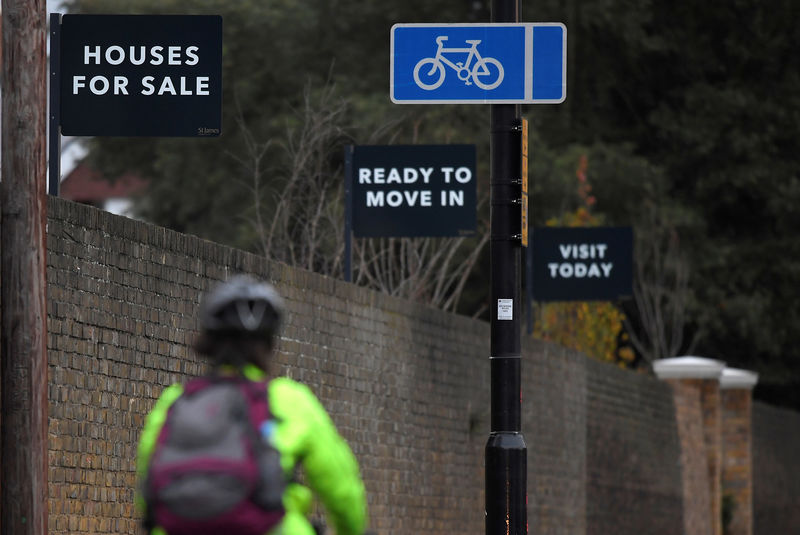Top European Payment Stocks Poised for Growth According to Bank of America
By Andy Bruce and William Schomberg
LONDON (Reuters) - Britons took on credit at the slowest rate in 18 months in October, easing some of the Bank of England's concerns about a rapid build-up of household debt, but other figures on Wednesday pointed to a murky outlook for the economy ahead of Brexit.
Squeezed by a sharp rise in inflation following last year's vote to leave the European Union, until recently British consumers had shown little sign of curbing their propensity to borrow.
But the BoE said annual growth in consumer lending cooled for the fourth time in the last five months, easing to 9.6 percent in October from September's 9.8 percent.
It was the weakest increase since April 2016.
BoE Deputy Governor Jon Cunliffe said he did not think British households were in a "debt-fuelled binge" but added that fast rates of credit growth needed to be watched.
A recent peak of consumer lending growth of 10.9 percent remains a few percentage points lower than the rates seen in the early 2000s.
But the BoE has put pressure on banks to make sure they are not taking too much risk with their lending to consumers.
Separately on Wednesday, a monthly survey from the European Commission painted a mixed picture of the economy.
It showed consumers mostly brushed off November's increase in interest rates, the first by the BoE in more than 10 years.
But confidence in the dominant services industry sagged to its weakest level since May 2013 - more than cancelling out an improvement in manufacturing.
Britain's economy is already growing more slowly than many of the world's rich nations, due to the impact of higher inflation since the referendum decision to leave the EU and uncertainty about the outcome of the Brexit talks.
Sterling jumped to a two-month high on Wednesday as investors greeted news reports that Britain and the European Union had agreed the outlines of a Brexit settlement bill. [GBP/]
Businesses, wary of a disorderly exit from the EU, have taken a cautious approach to investment this year - in contrast to consumers who have continued to borrow enthusiastically.
The BoE said net consumer lending in cash rose by 1.451 billion pounds in October, down only slightly from September.
"The Bank of England will welcome October's slowdown in consumer credit growth and will be keen to see it moderate further," said Howard Archer, chief economic adviser to the EY ITEM Club consultancy.
It remained to be seen if the rise in interest rates would dampen consumer borrowing markedly, he added.
On Tuesday, the Organisation for Economic Co-operation and Development repeated its warning that a sharp rise in high consumer debt was a major risk in Britain and it called for new caps on borrowing based on incomes of households.
The BoE figures published on Wednesday also showed the housing market slowed further ahead of this month's rate hike.
The number of mortgages approved for house purchase fell to 64,575 in October, its lowest since September last year, slightly below economists' average forecast for a decline to 65,000 in a Reuters poll.
